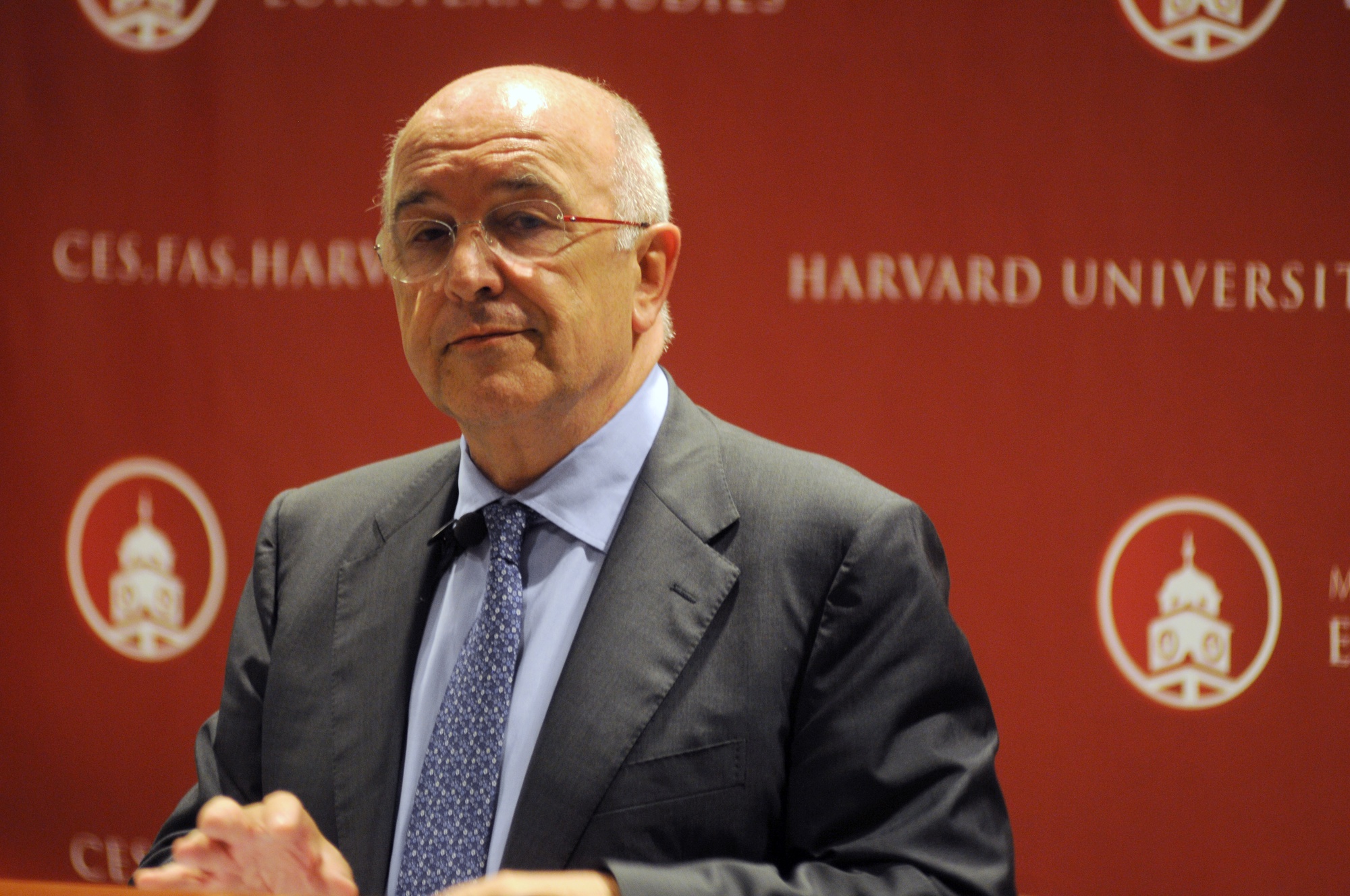
News
Summers Will Not Finish Semester of Teaching as Harvard Investigates Epstein Ties

News
Harvard College Students Report Favoring Divestment from Israel in HUA Survey

News
‘He Should Resign’: Harvard Undergrads Take Hard Line Against Summers Over Epstein Scandal

News
Harvard To Launch New Investigation Into Epstein’s Ties to Summers, Other University Affiliates

News
Harvard Students To Vote on Divestment From Israel in Inaugural HUA Election Survey
European Antitrust Chief Advocates Cooperation, European Common Market

Joaquín Almunia, Europe’s antitrust chief, told an audience at the Center for European Studies Thursday afternoon that the international community needs further cooperation to fight cartels and national policies that hurt the competitiveness of the European common market.
“It is important…to build a common approach and send a message that economic cooperation, trade, and investment are important to better organize the governance of the global economy,” he said in reference to new international networks for regulating competition.
The comments by Alumnia, vice president and commissioner for competition of the European Commission, came during a speech about contemporary and historical issues facing market competition policy in Europe.
In his speech, Almunia argued that antitrust agencies should fight “protectionist” trade barriers and encourage growth in European economies. These efforts, he said, are integral parts of the health of the European Union’s common market.
Almunia admitted that competition policy could seem technical, but pointed to three “basic ingredients” that he said make policy successful: a focus on growing economies, improving financial regulations, and enforcing competition rules throughout Europe. He added that there would be “serious consequences” for having unregulated financial markets.
Almunia said that this summer’s launch of negotiations for a new trade agreement between the EU and the United States was an important step towards promoting these basic principles.
During the question and answer session following the speech, Grzegorz Ekiert, a professor of government and director of the CES, noted the “pessimism of an agreement with the US” among many political commentators. While Almunia acknowledged this, he said that a second major meeting would take place in Brussels next month and remained hopeful for an “ambitious agreement.”
Almunia also described major challenges in the realm of competition policy. He said that the modern world is “not a world where industrial economies are masters of the universe” and that current circumstances demand new policy approaches, including greatly enhanced economic cooperation among industrialized and developing economies and a renewed scrutiny on the use of public subsidies.
He said that continued liberalization of various market sectors and distinguishing subsidies that “distort competition” from those that do not would create the kind of market that “will help companies become European champions.”
“I am not crazy, but I am optimistic,” Almunia said about the chance of success of enhanced agreements between the EU, the US, and emerging markets. Only with their passage could the global market create “mutual benefits…for all of us and citizens of other parts of the world,” he said.
Want to keep up with breaking news? Subscribe to our email newsletter.
